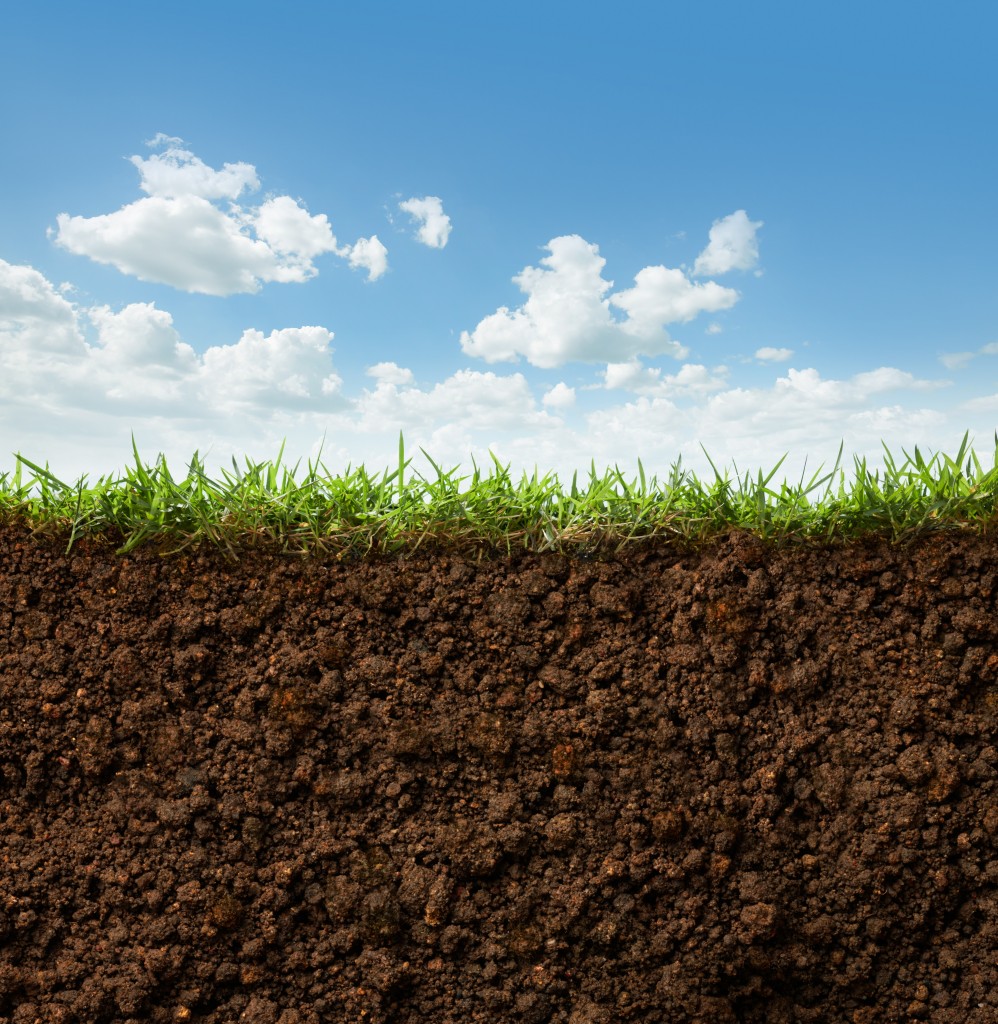
By Davie Philip
In the ground beneath our feet, out of sight and out of mind, microscopic communities of bacteria, fungi, protozoa and nematodes are working away providing vital functions upon which our very lives depend. The health of our soil, therefore, is key to the health of our plants, our food and, as we are now discovering, exposure to it has many other benefits for our wellbeing. It is likely that our disconnection from the living world is at the root of our present mental health crisis and many of the other challenges we face today. We all know that being in nature makes us feel good, and the health benefits of gardening, working or even just taking a walk on the land are becoming more apparent. Soil is alive; a teaspoon of it can contain billions of bacteria. There is increasing proof that contact with a specific strain of bacterium in the soil, Mycobacterium vaccae, makes us happier and smarter. This triggers the release of serotonin; reducing anxiety and making us feel more positive.
Some soil bacterium can also be helpful in preventing or treating diseases. Our future really does depend on healthy soil. With intensive agriculture and an increasing urban population, soil degradation is a serious problem. It takes approximately 500 years to replace an inch of topsoil lost to erosion. Half of the planet’s topsoil has disappeared in the last 150 years, and 10 million hectares of productive land is lost annually, the equivalent of 30 football pitches per minute.
If we want to counter the damage, we must begin by fostering awareness and nurturing a reconnection to our land. To reverse further degradation of soils we need to accelerate the shift towards more sustainable, regenerative agricultural models and increase participation in the stewardship of our land. Cultivate, the civil society organisation I work with, are the Irish partners in GROW, an EU-funded project setting out to empower citizens to become active guardians of our soil. Commercial organic growers, students, community gardeners and all sorts of growers will use sensors and other equipment to complete experiments and monitor and better understand their soil. They can then share their own data and learn from the results of the wider community. Increased availability of low-cost sensing technologies has opened up all sorts of new possibilities for collaborative data collection and sense making. GROW is a citizen observatory, where people of all ages and backgrounds can help with the monitoring of our soils at an EU-wide level, assisting organisations like the Met Office and policy makers in climate change adaptation and sustainable land use. As well as measuring soil quality, these engaged citizens will develop knowledge and practical skills to regenerate depleted soils. Do you have an allotment or own a small farm? Are you involved in a community or school garden? Do you want to develop your knowledge on soil and skills in growing food? Do you want to be part of a movement preserving soil for future generations? If the answer to any of these questions is yes then email grow@cultivate.ie to get involved.
davie Philip davie@cultivate.ie is a community catalyst at Cultivate cultivate.ie and is based in Cloughjordan ecovillage, thevillage.ie. He is curating the Convergence festival in September 2017 on the topic of Citizen engaged, Community Led Transitions. To join the conversation email convergence@cultivate.ie


